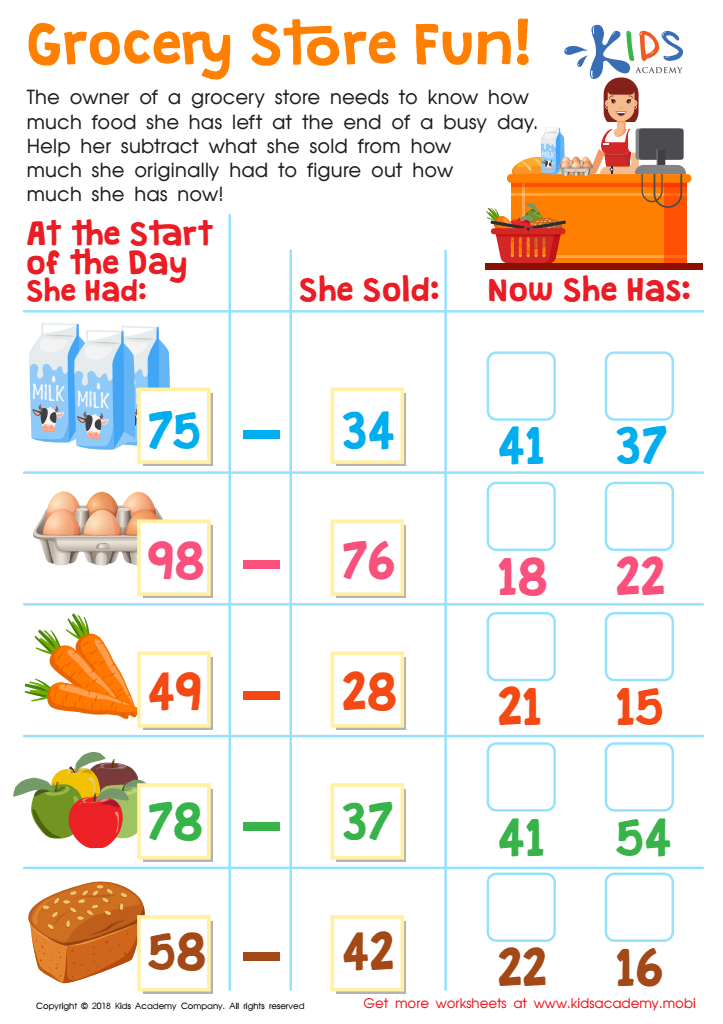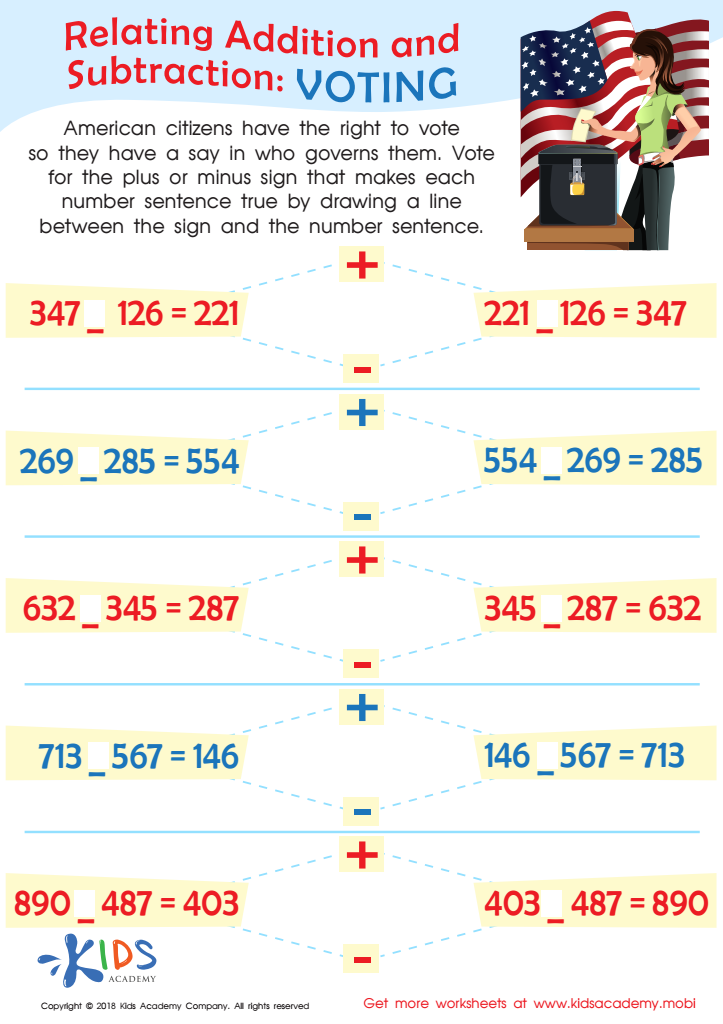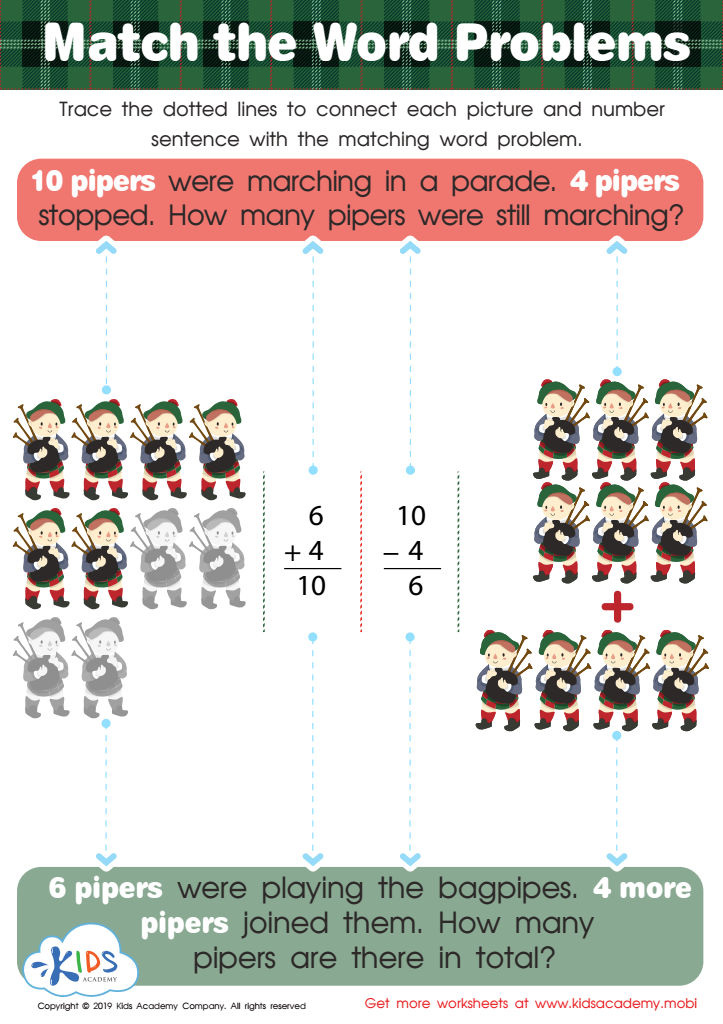Logical thinking development Subtraction Worksheets for Ages 7-8
3 filtered results
-
From - To
Enhance your child's logical thinking skills with our engaging subtraction worksheets designed for ages 7-8! These printable resources promote critical problem-solving abilities while reinforcing subtraction concepts. Each worksheet incorporates fun, real-world scenarios that challenge young learners to think analytically and apply their math knowledge creatively. As children solve diverse subtraction problems, they will boost their confidence and strengthen their understanding of number relationships. Perfect for home or classroom use, our worksheets provide valuable practice to help kids grasp essential math skills while developing logical reasoning. Download and start building a solid math foundation today!


Grocery Store Fun! Worksheet


Voting Worksheet


Match the Word Problems Worksheet
Logical thinking development in subtraction for ages 7-8 is crucial for several reasons. At this stage, children are moving beyond basic arithmetic to more complex problem-solving, requiring them to understand not just how to subtract, but why subtraction works in context. This understanding aids cognitive development, enhances critical thinking skills, and promotes the ability to tackle real-world problems.
For parents and teachers, emphasizing logical thinking in subtraction reinforces foundational math skills essential for future learning. Strong reasoning skills contribute to mathematical fluency, enabling students to approach word problems and multi-step calculations with confidence. Additionally, as children learn to reason through subtraction, they develop patience, perseverance, and the ability to articulate their thought processes, skills that extend beyond mathematics to all areas of learning.
Encouraging logical thinking also makes math more engaging and enjoyable for children. It transforms computation into a meaningful inquiry, sustaining their interest in the subject. Ultimately, fostering logical thinking in subtraction not only contributes to academic success but also fosters a lifelong love of learning and equips children with critical life skills they will use in diverse contexts throughout their lives. Therefore, both parents and teachers play essential roles in supporting this development.
 Assign to My Students
Assign to My Students




















